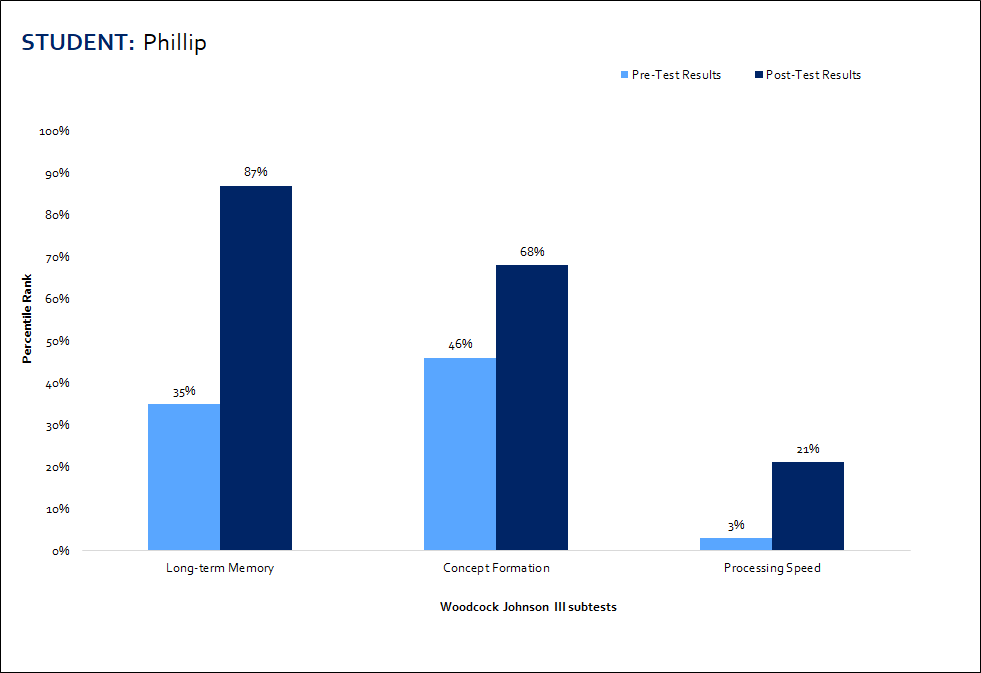Phillip
Phillip
- Name: Phillip
- Age: 17
ASD

Phillip’s remarkable ability to hold and work with information in the short-term (working memory) was affecting his ability to deeply process information, store it in long-term memory and use it to reason and problem-solve. He was taught evidence-based memory techniques, which involve ‘semantic encoding’ or creating meaning of what is being memorized, often by connecting it to past learned information. Paul struggled with creating meaning, as he had a natural inclination for rote memorization. He did have a strong foundation of general knowledge, and we leveraged this to learn new content while also learning to apply memory techniques.
Phillip learned best with structure, so we created discrete steps for applying the techniques and discussed where these can be applied. With practice, Phillip began applying the techniques more effectively and efficiently. However, he only applied it when told to do so, and otherwise reverted to rote memorization. To encourage transfer of the memory techniques, we then worked on building Phillip’s metacognition.
Specific learning trials were set for Phillip to understand that information he learned via rote memory was not retained long-term. With prompting and time, Phillip fully realized the benefits of using the techniques. With him on board, we began applying these to learn information of interest to him using his History book and science articles.
Overall, Phillip’s ability to process information at a global level and apply memory techniques to retain information long-term significantly improved.
By the end of his program, Phillip was pausing to create associations and/or make mind map to examine how new information connected to what he already knows without any prompting. He was able to answer more complex comprehension questions from reading passages and contribute to conversations more meaningfully because of this.



